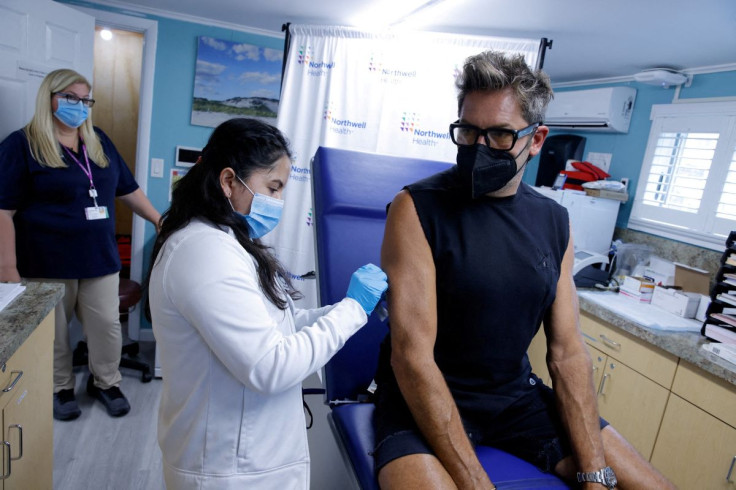New York Wants Monkeypox Name Change Over Its ‘Painful And Racist History’
KEY POINTS
- New York City Health Commissioner Dr. Ashwin Vasan urged the World Health Organization to rename the monkeypox virus
- Continuing to use the name "may reignite traumatic feelings of racism and stigma," particularly among vulnerable communities, he said
- These communities may avoid vital health care services as a result, according to the health official
New York City -- Dr. Ashwin Vasan, New York City's public health commissioner, called on the World Health Organization (WHO) Tuesday to rename the monkeypox virus over the "potentially devastating and stigmatizing effects" it can have on vulnerable communities.
"NYC joins many public health experts and community leaders who have expressed their serious concern about continuing to exclusively use the term 'monkeypox' given the stigma it may engender, and the painful and racist history within which terminology like this is rooted for communities of color," Vasan wrote in a letter addressed to Dr. Tedros Adhanom Ghebreyesus, WHO's director-general.
Monkeypox received its classification due to an infection seen in research primates, but early misinformation about the virus led people to believe it was spread to humans after people in Africa engaged in sexual activity with monkeys, Vasan explained.
Such false messaging has created "incalculable harm and stigma for decades to come," and continuing to use the term monkeypox "may reignite traumatic feelings of racism and stigma," especially among Black people, people of color and members of the LGBTQIA+ community, the commissioner said in his letter.
These communities may avoid engaging in vital health care services as a result, according to Vasan.
The public health chief also fears that the consequences caused by monkeypox-related stigma may escalate as, given in many contexts, transmission of the virus is concentrated among men who have sex with other men, a population he said is facing ongoing stigma, marginalization, violence and criminalization.
Citing a seven-fold increase of anti-Asian hate crimes being reported to the New York City Commission on Human Rights since the beginning of February 2020, Vasan noted that "the language we use in public health matters, and it has tangible effects on the safety of community most at risk for poor health outcomes."
"Words can save lives or put them at further risk; thus, the world cannot repeat these mistakes in nomenclature again," the doctor said.
"The WHO must act in this moment before it’s too late," he warned.
Ghebreyesus announced on June 14 that the WHO started working with partners and experts from around the world on changing the name of the monkeypox virus.
Just days before the announcement, more than 30 international scientists released a statement that called for monkeypox to be renamed as its classification was deemed discriminatory and stigmatizing.
A total of 4,639 monkeypox cases have been reported in the U.S., publicly available data provided by the Centers for Disease Control and Prevention showed.
In the country, 90,597,814 COVID-19 cases and 1,023,382 virus-related deaths have been reported, according to the agency.

© Copyright IBTimes 2025. All rights reserved.





















